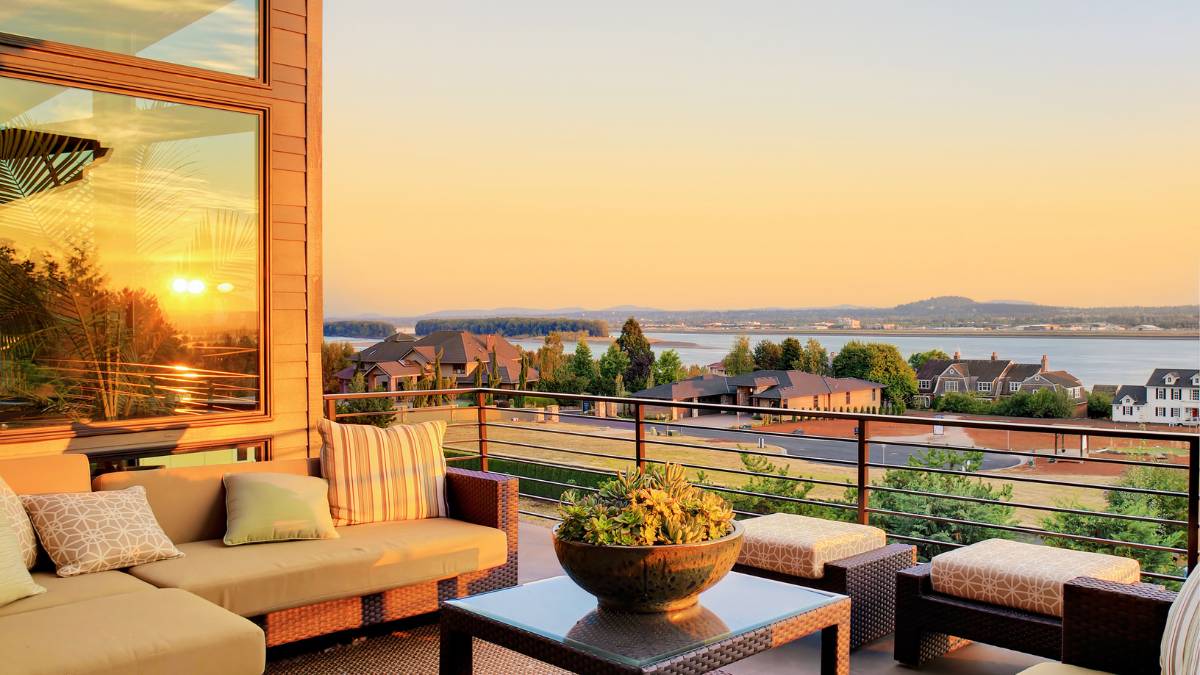Last Updated on March 19, 2024 by Kravelv Spiegel
Designing a patio involves careful consideration of various factors to create an outdoor space that seamlessly integrates with your lifestyle and enhances the beauty of your home.
From layout and materials to functionality and aesthetics, every detail plays a crucial role in shaping your patio’s design. Here are essential considerations to keep in mind when planning your perfect patio retreat.
Purpose and Functionality
Begin by defining the primary purpose of your patio and how you envision using the space. Will it serve as a dining area for al fresco meals, a cozy lounge for relaxation, or an entertainment hub for hosting gatherings?
Consider your lifestyle and preferences to determine the functionality and layout of your patio. Incorporate designated zones for different activities, such as cooking, dining, lounging, and gardening, to maximize usability and enjoyment.
Size and Layout
Evaluate the available space in your outdoor area and determine the size and shape of your patio accordingly. Consider factors such as the scale of your home, existing landscaping features, and desired seating capacity when planning out how you want it to look.
Opt for a layout that promotes traffic flow and encourages interaction while maintaining balance and proportion with the surrounding landscape. Experiment with different shapes, such as square, rectangular, or curved, to find the optimal design for your patio.
Location and Orientation
Select a strategic location for your patio that takes advantage of sunlight, shade, and views. Consider factors such as privacy, prevailing winds, and proximity to indoor spaces when choosing the placement of your patio.
Orient the layout to maximize exposure to natural light and minimize exposure to harsh elements. Incorporate features like pergolas, awnings, or trees to provide shade and shelter, creating a comfortable and inviting outdoor retreat throughout the day.
Material Selection
Patio installation by St Albans Landscaping Team can use durable and weather-resistant materials for your patio that complement your home’s architecture and landscape design. Popular options include natural stone, concrete pavers, brick, wood decking, and composite materials.
Consider factors such as aesthetics, durability, maintenance requirements, and budget when selecting patio materials. Explore various textures, colors, and finishes to achieve the desired look and feel for your outdoor space while ensuring longevity and performance.
Style and Design Elements
Infuse your patio with personality and style by incorporating design elements that reflect your taste and preferences. Consider themes, color schemes, and architectural details that complement your home’s exterior and interior decor.
Explore options for furniture, lighting, planters, and accessories that enhance the ambiance and functionality of your patio. Integrate elements such as fire pits, water features, pergolas, or outdoor kitchens to create focal points and add visual interest to your outdoor retreat.
Accessibility and Safety
Ensure that your patio is accessible and safe for all users, including family members, guests, and pets. Incorporate features such as ramps, handrails, and non-slip surfaces to accommodate individuals with mobility challenges and prevent accidents.
Consider lighting, signage, and barrier-free pathways to improve visibility and navigation, especially at night or in low-light conditions. Install safety features such as railings, gates, and childproof locks to protect young children and pets from potential hazards.
Conclusion
Designing a patio involves careful planning and attention to detail to create a functional, comfortable, and visually appealing outdoor space that complements your home and lifestyle.
By considering factors such as purpose, size, location, materials, design elements, accessibility, and safety, you can create a patio retreat that reflects your personality and enhances your outdoor living experience for years to come.

